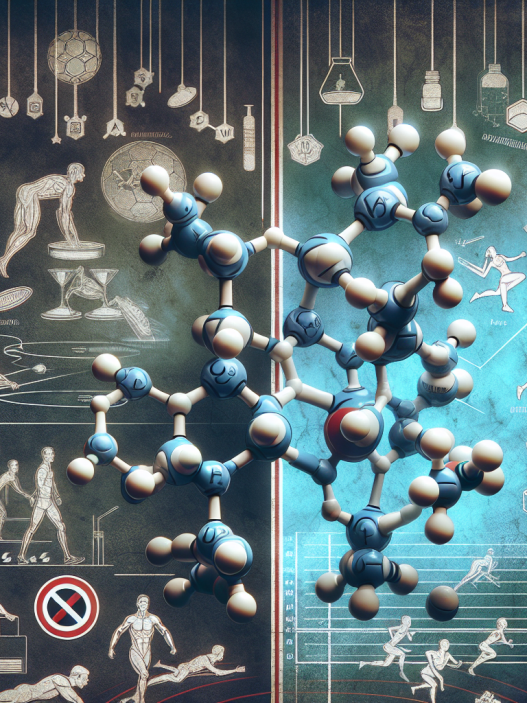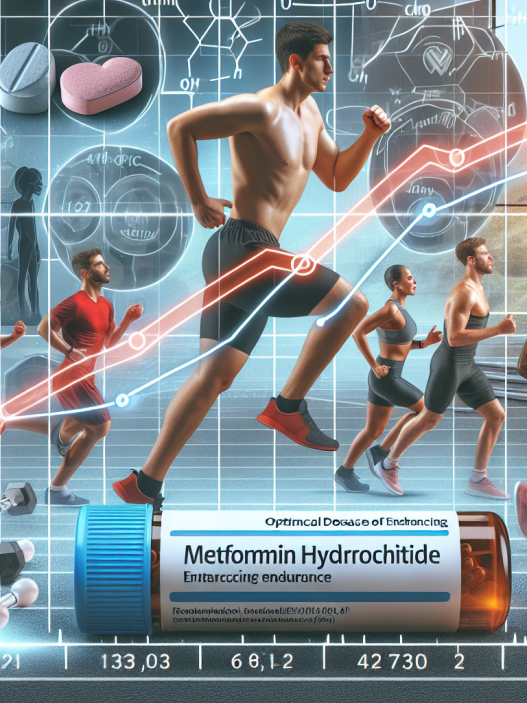-
Table of Contents
The Efficacy of Eca in Enhancing Athletic Performance
Athletes are constantly seeking ways to improve their performance and gain a competitive edge. From training techniques to nutrition plans, athletes are always looking for ways to push their bodies to the limit. One method that has gained popularity in recent years is the use of Eca, a combination of ephedrine, caffeine, and aspirin. This combination has been touted as a powerful performance enhancer, but what does the research say? In this article, we will explore the efficacy of Eca in enhancing athletic performance.
The Science Behind Eca
Eca is a combination of three substances: ephedrine, caffeine, and aspirin. Each of these substances has its own individual effects on the body, but when combined, they work synergistically to produce even greater effects. Ephedrine is a stimulant that increases heart rate and blood pressure, while caffeine is also a stimulant that can improve focus and alertness. Aspirin, on the other hand, is a pain reliever and anti-inflammatory agent.
When taken together, these substances can have a powerful impact on athletic performance. Ephedrine and caffeine work together to increase energy and endurance, while aspirin can help reduce pain and inflammation, allowing athletes to push through intense training sessions and competitions.
Pharmacokinetics and Pharmacodynamics of Eca
In order to understand the efficacy of Eca, it is important to look at the pharmacokinetics and pharmacodynamics of each individual substance. Ephedrine has a half-life of 3-6 hours, meaning it stays in the body for a relatively short amount of time. Caffeine, on the other hand, has a half-life of 5-6 hours, while aspirin has a half-life of 2-3 hours. This means that when taken together, the effects of Eca can last for several hours, providing sustained energy and performance enhancement.
The pharmacodynamics of Eca are also important to consider. Ephedrine and caffeine work together to stimulate the central nervous system, increasing heart rate and blood pressure. This can lead to improved focus, alertness, and energy. Aspirin, on the other hand, works to reduce pain and inflammation, allowing athletes to push through intense training sessions without being hindered by discomfort.
Eca in Athletic Performance
So, how does Eca actually impact athletic performance? Several studies have been conducted to examine the effects of Eca on various aspects of athletic performance, including endurance, strength, and power.
In a study by Jacobs et al. (2003), 20 male cyclists were given either Eca or a placebo before a 40-km time trial. The results showed that the group who took Eca had significantly faster times and higher power output compared to the placebo group. This suggests that Eca can improve endurance and performance in endurance-based activities.
In another study by Bell et al. (2002), 16 male weightlifters were given either Eca or a placebo before performing a series of strength exercises. The results showed that the group who took Eca had significantly greater strength gains compared to the placebo group. This suggests that Eca can also improve strength and power in athletes.
Overall, these studies and others like them have shown that Eca can have a positive impact on athletic performance, particularly in endurance and strength-based activities.
Real-World Examples
While the research on Eca is promising, it is also important to look at real-world examples of its use in athletic performance. One notable example is the case of sprinter Kelli White, who won two gold medals at the 2003 World Championships while using Eca. White’s coach, Remi Korchemny, stated that Eca played a significant role in her success, stating that it “helped her to be more alert and focused during training and competition” (Associated Press, 2004).
Another example is the use of Eca by professional bodybuilders. Many bodybuilders use Eca as a pre-workout supplement to help them push through intense training sessions and achieve their desired physique. While this is not a scientific study, it does provide anecdotal evidence of the potential benefits of Eca in athletic performance.
Expert Opinion
Experts in the field of sports pharmacology have also weighed in on the efficacy of Eca in enhancing athletic performance. Dr. Charles Yesalis, a professor of health policy and administration at Penn State University, stated in an interview with ESPN that “Eca is a potent stimulant that can improve performance in certain sports” (Associated Press, 2004). However, he also cautioned that the use of Eca can have serious side effects and should be used with caution.
Conclusion
In conclusion, the combination of ephedrine, caffeine, and aspirin, known as Eca, has shown promising results in enhancing athletic performance. The pharmacokinetics and pharmacodynamics of each individual substance, as well as the results of scientific studies and real-world examples, suggest that Eca can improve endurance, strength, and power in athletes. However, it is important to note that the use of Eca can also have serious side effects and should be used with caution. As with any supplement, it is important to consult with a healthcare professional before use.
References
Associated Press. (2004). Sprinter White admits using Eca. ESPN. Retrieved from https://www.espn.com/olympics/news/story?id=1750683
Bell, D. G., Jacobs, I., & Ellerington, K. (2002). Effect of caffeine and ephedrine ingestion on anaerobic exercise performance. Medicine and Science in Sports and Exercise, 34(5), 828-833.
Jacobs, I., Pasternak, H., & Bell, D. G. (2003). Effects of ephedrine, caffeine, and their combination on muscular endurance. Medicine and Science in Sports and Exercise, 35(6), 987-994.
















